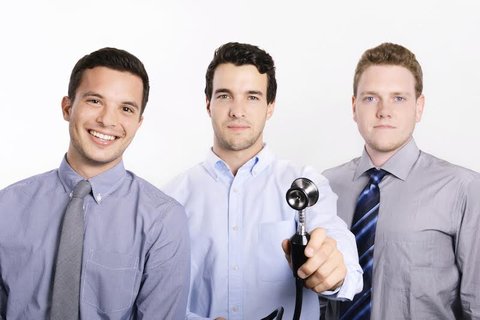The stethoscope, that iconic tool of doctors, has been upgraded several times since it was invented two centuries ago. Eko Devices, a start-up led by three recent graduates of the University of California, Berkeley, is betting that it is time for another innovative overhaul.
Last Friday, the fledgling company received approval from the Food and Drug Administration to market its Eko Core, a digital device that attaches to a conventional stethoscope and allows it to record, amplify and wirelessly send audio and sound wave images to an iPhone application. Its software meets federal standards for privacy and security, the founders say, and it can transmit its heart sounds and waveforms to the electronic health records used in hospitals and clinics. An Android app is scheduled to be released early next year.
Read on about The New York Times article, featuring MEng alum Connor Landgraf
The seed of the idea that became Eko was planted at a class that Connor Landgraf, a bioengineering major, attended during his senior year at Berkeley. A researcher from the University of California, San Francisco, spoke to the class about gaps in modern medical technology. In particular, he pointed to the challenge of interpreting heart sounds and accurately detecting abnormalities, especially for most physicians, who do not spend years listening to heart rhythms, as cardiologists do.
Mr. Landgraf, now, 25, who has experienced occasional heart palpitations, was intrigued. “It was the inspiration for this company,” he recalled.





